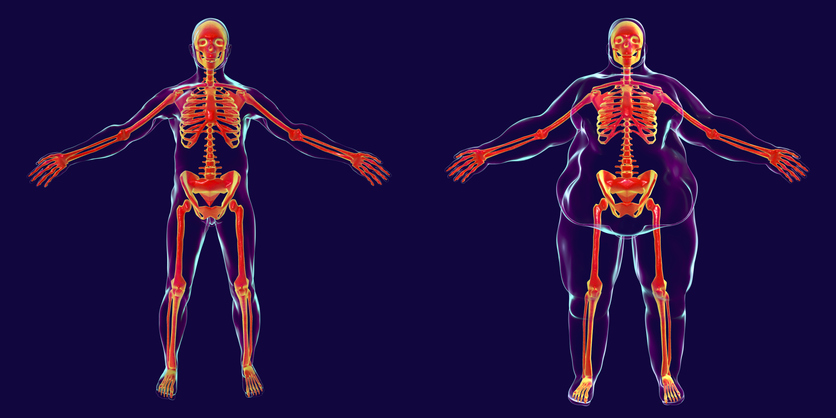Cancer and Obesity – is there a link?
By Lizzie Streit, MS, RDN, LD
Cancer is the second leading cause of death in the United States and affects millions of people worldwide. The exact causes of this deadly disease are unknown, but an unhealthy diet and limited exercise may play a role.
Research has linked poor dietary choices with the development of certain cancers, including breast and colon cancers (1).
What’s more, being overweight or obese may be associated with an increased risk of several other cancers, especially among young adults. In fact, there are over 12 cancers associated with obesity (2).
A study published in February in The Lancet Public Health reported that the incidence of obesity-related cancers in young adults is increasing. Specifically, there was a higher number of cases of multiple myeloma, colorectal, endometrial, gallbladder, kidney, and pancreatic cancer over the course of the 19-year study in adults who were 25 to 49 years old compared to older adults (2).
The study also found that the rates of these cancers were highest in younger generations. For example, there was an increased incidence of obesity-related cancers in adults between 25 and 29 years old compared to those who were 45 to 49 years old (2).
It’s important to note that the results of this study do not suggest that obesity causes cancer. However, being overweight or obese may increase the risk of developing certain types of cancer. The exact mechanism by which obesity influences cancer growth is unknown, but some experts suggest that fat tissue promotes tumor growth (3).
While cancer is typically thought of as a disease that mostly affects older adults, the recent Lancet study challenges this mindset. The findings serve as an important reminder of the health risks associated with obesity, which affects over 35% of young adults between 20 and 39 years of age (4).
Eating a healthy diet and engaging in regular physical activity can help those who are overweight or obese get to a healthier weight. Maintaining a healthy weight can have a number of benefits and may even decrease the risk of developing cancer. In addition, eating a diet rich in fruits, vegetables, and other plant foods, and limiting consumption of fried and processed meats, may also help reduce cancer risk.
If you are trying to eat better or lose weight but don’t know where to start, check out our top 10 tips for weight loss and how you can set realistic and attainable goals for your weight loss journey.
Note from Healthy For Life Meals: Our meal plans have helped thousands of clients get to a healthy weight! Get started with one of our plans today to jumpstart your weight loss journey, so you can reap the health benefits.

